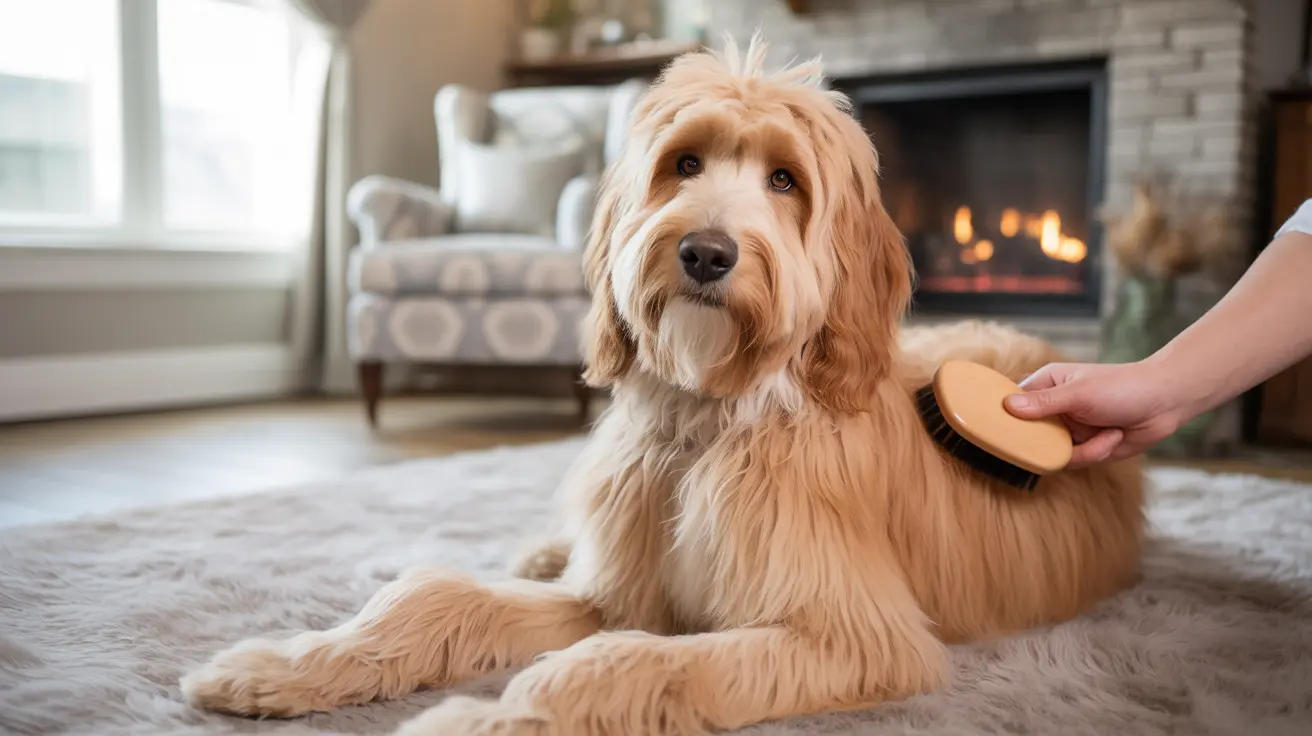Understanding Goldendoodle Allergens
If you're considering adding a Goldendoodle to your family while managing pet allergies, you're not alone. These popular designer dogs are often marketed as hypoallergenic options, but the reality is more complex than a simple yes or no answer.
Goldendoodles, a cross between Golden Retrievers and Poodles, can indeed be less allergenic than many other breeds. However, it's crucial to understand that no dog is completely hypoallergenic, and individual experiences can vary significantly based on several factors.
The Science Behind Dog Allergies
Dog allergies are primarily triggered by proteins found in a dog's saliva, urine, and dander (dead skin cells) – not just their fur. These proteins, particularly Can f 1, become airborne when dogs shed or release dander, potentially causing allergic reactions in sensitive individuals.
While Goldendoodles typically shed less than many other breeds, they still produce these allergenic proteins. The key difference lies in how effectively their coat type contains and manages these allergens.
Coat Types and Their Impact on Allergies
Goldendoodles can inherit different coat types, which significantly affect their potential to trigger allergies:
- Curly coats (most Poodle-like): Generally shed least and trap more dander
- Wavy coats: Moderate shedding and allergen release
- Straight coats: Most likely to shed and release allergens
The curlier the coat, the more likely the dog is to be suitable for allergy sufferers, as these coats tend to shed less and keep more dander contained.
Essential Grooming Practices
Regular grooming is crucial for managing allergen levels in Goldendoodles:
- Brush 2-3 times weekly (daily for curly coats)
- Professional grooming every 6-8 weeks
- Regular bathing with appropriate dog shampoo
- Maintain clean ears and trimmed nails
Consistent grooming not only reduces allergen spread but also prevents matting and maintains overall coat health.
Creating an Allergy-Friendly Environment
Beyond grooming, managing your home environment is essential:
- Use HEPA air purifiers in main living areas
- Vacuum frequently with a HEPA-filtered vacuum
- Wash dog bedding weekly
- Keep certain rooms as pet-free zones
- Consider hard flooring instead of carpet
Frequently Asked Questions
Are Goldendoodles truly hypoallergenic or just less likely to cause allergies?
While no dog is completely hypoallergenic, Goldendoodles with curly, Poodle-like coats typically produce fewer allergens than many other breeds. However, they still produce allergenic proteins in their saliva, urine, and dander.
How do different Goldendoodle generations (F1, F1B, F2B) affect their hypoallergenic traits?
Later generations with higher Poodle percentages (F1B, F2B) are more likely to have hypoallergenic qualities due to their curlier, low-shedding coats. F1 generations can be less predictable in their coat type and allergenic properties.
What grooming routines help reduce allergen exposure from Goldendoodles?
Regular brushing (2-3 times weekly), professional grooming every 6-8 weeks, and consistent bathing help minimize allergen spread. Daily brushing is recommended for curly-coated Goldendoodles.
Can spending time with a Goldendoodle before adoption help predict allergy reactions?
Yes, spending extended time with a specific Goldendoodle is highly recommended before adoption. This "trial period" can help determine if you'll have an allergic reaction to that particular dog.
How does coat type (curly vs. straight) impact allergen levels in Goldendoodles?
Curly coats typically trap more dander and shed less, resulting in fewer airborne allergens. Straight coats tend to shed more and release more allergens into the environment.
Conclusion
While Goldendoodles can be an excellent choice for allergy sufferers, success depends on proper research, preparation, and maintenance. Consider coat type carefully, maintain consistent grooming practices, and create an allergy-friendly home environment to maximize your chances of a successful relationship with your Goldendoodle.
Before making a final decision, consult with allergists, reputable breeders, and spend time with Goldendoodles to ensure they're the right fit for your specific situation. With proper understanding and management, many allergy sufferers can successfully share their homes with these beloved dogs.






